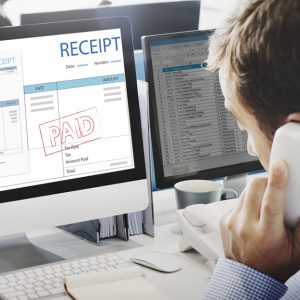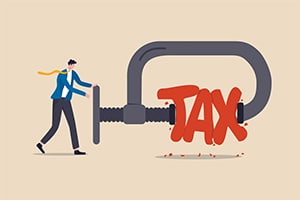
Business Advisory Services
Everything you need to help you launch your new business entity from business entity selection to multiple-entity business structures.
Hey - Our site just had a makeover and we are sorting through the hiccups!
Hey - Our site just had a makeover and we are sorting through the hiccups!

Everything you need to help you launch your new business entity from business entity selection to multiple-entity business structures.

Designed for rental property owners where WCG CPAs & Advisors supports you as your real estate CPA.

Everything you need from tax return preparation for your small business to your rental to your corporation is here.

WCG’s primary objective is to help you to feel comfortable about engaging with us
Table Of Contents

But we need to pump the brakes on some things, pun intended, before we get too revved up on buying a car for your business. We should probably red light the puns.
First let’s review the 2018 rules on Section 179 deductions for business equipment including business vehicles.
Let’s talk about the Hummer Loophole since that is where most taxpayer confusion comes from. Yes, at some point, long ago, in a galaxy far far away, businesses could buy heavy trucks and deduct them 100%. Was this a loophole of sorts? Yes. Does Congress and the IRS like loopholes? Not really, unless it benefits them. Did Congress and the Joint Committee on Taxation change the Hummer Loophole? Yes. What is the current state of affairs in 2018 after TCJA? Good question, read on (sneak peek, we are back to 100% for heavy trucks… Hummers for everyone Oprah!).
Let’s now talk about which business vehicles are eligible for 100% Section 179 deduction under the current 2018 tax laws after the Tax Cuts and Jobs Act of 2017. The following trucks and business vehicles qualify for 100% deduction in Year 1-
This is straight from the Section179.org website who does a fantastic job of explaining this stuff. So what are the Section 179 deduction limits for passenger vehicles and heavy trucks that don’t meet the list above? That is another really good question! The following is directly from the IRS website speaking in reference to the Tax Cuts and Jobs Act of 2017-
The new law changed depreciation limits for passenger vehicles placed in service after Dec. 31, 2017. If the taxpayer doesn’t claim bonus depreciation, the greatest allowable depreciation deduction is:
If a taxpayer claims 100 percent bonus depreciation, the greatest allowable depreciation deduction is:
The new law also removes computer or peripheral equipment from the definition of listed property. This change applies to property placed in service after Dec. 31, 2017.
You say, “so, my heavy SUV doesn’t qualify for a 100% deprecation deduction under Section 179 because of the seating and configuration of the cargo hold, so now what?” Another really good question!
The order of depreciation is Section 179 Deduction, then Bonus Depreciation and then regular depreciation. This means you apply limits, subtract the allowance and then apply subsequent laws to the remaining amounts. A truck or SUV that weighs more than 6,000 pounds is not considered a luxury automobile and therefore is not limited by Section 280F in the same way.
As such, the first year depreciation deduction for your heavy business vehicle would be-
So that $90,000 Ford F250 truck that comes in around 6,700 pounds would be fully deductible in Year 1. Wow! That is good news, right? Right! The Hummer Rule is back baby! Do I have to buy a new heavy truck to qualify for the bonus depreciation? No. The old rule was Yes, but the Tax Cuts and Jobs Act of 2017 changed that too. Here is the blurb from the IRS website-
So there you go. The problem still remains with luxury passenger vehicles weighing under 6,000. Those limits are $18,000 for the first year under Section 280F and there are problems in subsequent years that we don’t want to bore you with, but if you want to read IRS Rev. Proc. 2011-21 for nauseating examples, then go for it.
The bottomline is this- to maximize your Section 179 deduction for the business vehicle purchase, buy a vehicle that weighs over 6,000 pounds. Or… instead of driving Miss Daisy, drive a sumo wrestler to push you over 6,000 pounds (kidding!).
Now that we have the Section 179 deduction all ironed out, should you own in the business or own it personally and get a mileage reimbursement? Let’s look at some examples-
You like big fancy cars that cost $80,000 and you only drive 5,000 miles for the business. Degradation of value is a way of life simply based on time so this vehicle will go down in value, and as such you might as well get a tax deduction for it. Ergo, have the business own it. In other words, if you have already budgeted for the degradation of vehicle value you might as well get a tax deduction for it, right?
You are frugal and therefore you like to buy used Subarus costing around $20,000… and, you drive the wheels off the thing because you are a real estate agent. Degradation in value is not as severe as example 1, so in this example the small business owner should own the vehicle personally and get a mileage reimbursement from the business.
You like big heavy trucks that cost $80,000 and you drive 12,000 miles for the business. You would like to save some taxes this year as well (shocking). This is a great example of using Section 179 plus 100% Bonus Depreciation to deduct the full amount of the truck.
Same as example 3, but you expect your income to dramatically increase next year versus this year. In this case, have some patience and purchase the truck next year to match the excellent tax deduction against the higher income. We know, patience stinks. Our job is to build your wealth, and save taxes over your lifetime… not just today.
Should you buy an automobile in the business? Or own it personally? Who knows!? We can help you come to an informed decision about mileage reimbursements, depreciation, Section 179 and bonus depreciation.
You buy a lightly used SUV that weighs over 6,000 pounds for $50,000 and you drive it 6,000 miles per year. Yuck. This is right in the middle of “no man’s land” where the decision is not obvious. Yes, you can deduct the full amount of $50,000 since the Section 179 deduction is not based on a new vehicle, just new to you. Same with 100% Bonus Depreciation with the new tax law.
But recall that depreciation is a tax deferral… if you sell your business vehicle for $40,000 a few years later, you will have depreciation recapture on the $40,000 taxed at ordinary income tax rates (with some limits). And… Section 1031 Like-Kind Exchanges no longer apply to vehicles so you can’t trade it in to kick this depreciation recapture can down the road.
It might behoove you then to own this vehicle personally and get a mileage reimbursement from the business. Then again, if you have an unusually high income this year perhaps deducting it in full today makes sense. Again, “no man’s land” since the decision now has a ton of variables and what-ifs.
Same as example 5 but you keep the vehicle for 10 years and drive 15,000 miles. This changes the narrative. Since you will be owning it for so long with so many miles, the mileage reimbursement option is the way to go. In other words, own it personally and get reimbursed for the business miles you drive.
Let’s flip this around. Let’s say you buy fancy vehicles and you recycle them every 2-3 years. Typically this should be owned by the business regardless of mileage since you are taking large degradations in value simply based on time with little consideration to miles. A $100,000 vehicle might be worth $70,000 after 2 years so use this depreciation in value as a tax benefit by owning it in the business.
We leave all sorts of room for every business owner’s ego… we probably have some of that too. What are we talking about? Well, we discussed the bookends of the automobile decision tree; high miles / cheap auto, own it personally. Low miles / spendy auto, own it in the business. But the squishy middle is tough… the mid miles / mid budget auto. When in doubt, we suggest playing to your ego and own the automobile within your business. Why? Because it is good cocktail party fodder. “Yeah… my Porsche 911 Turbo S softop is a business vehicle darlin’. Wanna blow this joint?”
Here are some links to other information from our website about business vehicles-
The IRS wants the business vehicle to be titled in the business. Makes sense right? How can an asset be listed on the balance sheet if the entity doesn’t have title to it, or at least the right to the title, and risk of loss. However, insurance companies will now want to charge an additional premium for a business vehicle. This is down right silly since the risk exposure does not change based on title alone… it is based on use.
One gimmick that we have discovered at least with State Farm in Colorado is titling the business vehicle in both names such as “WCG (formerly Watson CPA Group) and Jason Watson TIC” with the TIC referring to tenants in common. We have titled it, in part, in the business name but our insurance company is providing full coverage as a personal insurance policy. Caution- This might not work for you, and you must review this with your insurance agent, your attorney and your priest. Hopefully they are all the same person… that’d be nice. “Forgive me father for I have sinned. I bought a vehicle for my business.”
Leases are bad, especially on business vehicles over $80,000 for three really big reasons. First, the residual value offered on a 36 month lease will be about 60% or $48,000. This is essentially what the leasing company believes the vehicle will be worth after 3 years. Yuck #1.
Second, they take the degradation in value ($80,000 minus $48,000) and apply a capitalization rate of 8% to 12%. This is essentially your interest rate. Yuck #2.
Third, they put ridiculous mileage limitations such as 10,000 miles per year with heavy penalties for going over the limit. 10,000 miles is laughable for the most modern day business owners or families. Yuck #3.
Sure, if you lease a more economical vehicle such as a Subaru Crosstrek for $30,000 then Yuck #1 goes away. But Yucks #2 and #3 remain. Also, vehicle leases are generally not capitalized leases (they do not have a bargain purchase option) and therefore they cannot take advantage of the Section 179 deduction or Bonus Depreciation. Contrast that with your leased copier with a $1 buy-out option… this is considered “financing” or a capitalized lease, and the asset can be listed on your balance sheet, depreciated, painted purple, etc.
Here is a recap-
Cargo vans, 9+ passenger vans, heavy trucks over 6,000 lbs, tractor trailers, and certain construction equipment.
Yes, if they are new to you and not acquired from a related party.
$18,000 in the first year.
Not always; it depends on factors like cost, mileage, and expected depreciation.
Yes, Section 179 is applied first, then Bonus Depreciation, followed by regular depreciation.
Depreciation recapture may apply and is taxed as ordinary income.
IRS prefers it, but you should also consider insurance implications.
Generally no, especially for luxury vehicles without a bargain purchase option.
Higher Section 179 limits plus 100% Bonus Depreciation, allowing a full Year 1 deduction.
Evaluate factors like cost, miles driven, expected depreciation, and your overall tax strategy.

Want to talk to us about tax return preparation, tax planning and strategy, and all the other things that go with it? We are eager to assist! The button below takes you to our Getting Started webpage, but if you want to talk first, please give us a call at 719-387-9800 or schedule an discovery meeting.
Jason Watson, CPA is a Partner and the CEO of WCG CPAs & Advisors, a boutique consultation and tax preparation CPA firm serving clients nationwide with 7 partners and over 90 tax and accounting professionals specializing in small business owners and real estate investors located in Colorado Springs.
He is the author of Taxpayer’s Comprehensive Guide on LLC’s and S Corps and I Just Got a Rental, What Do I Do? which are available online and from mostly average retailers.
Table Of Contents

Tax planning season is here! Let's schedule a time to review tax reduction strategies and generate a mock tax return.

Tired of maintaining your own books? Seems like a chore to offload?
Did you want to chat about this? Do you have questions about us? Let’s chat!
The tax advisors, business consultants and rental property experts at WCG CPAs & Advisors are not salespeople; we are not putting lipstick on a pig expecting you to love it. Our job remains being professionally detached, giving you information and letting you decide within our ethical guidelines and your risk profiles.
We see far too many crazy schemes and half-baked ideas from attorneys and wealth managers. In some cases, they are good ideas. In most cases, all the entities, layering and mixed ownership is only the illusion of precision. As Chris Rock says, just because you can drive your car with your feet doesn’t make it a good idea. In other words, let’s not automatically convert “you can” into “you must.”
Let’s chat so you can be smart about it.
We typically schedule a 20-minute complimentary quick chat with one of our Partners or our amazing Senior Tax Professionals to determine if we are a good fit for each other, and how an engagement with our team looks. Tax returns only? Business advisory? Tax strategy and planning? Rental property support?

Everything you need to help you launch your new business entity from business entity selection to multiple-entity business structures.

Designed for rental property owners where WCG CPAs & Advisors supports you as your real estate CPA.

Everything you need from tax return preparation for your small business to your rental to your corporation is here.

WCG’s primary objective is to help you to feel comfortable about engaging with us

